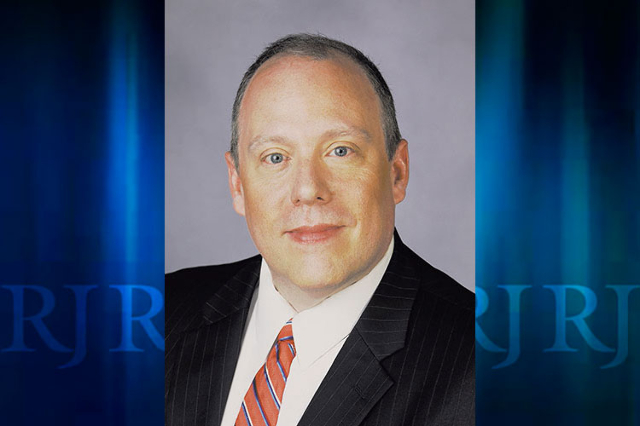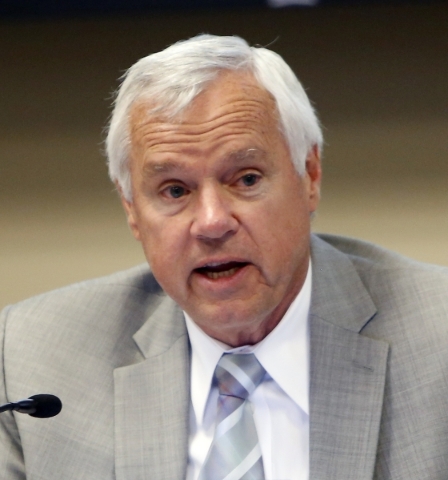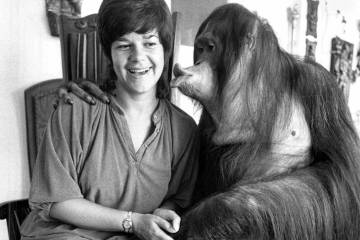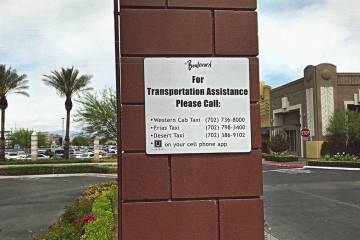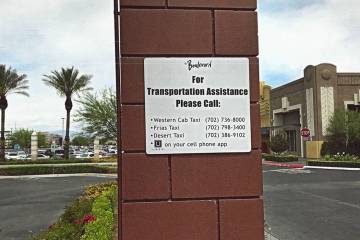Fewer students now the norm in U.S. law schools
People ask what makes a worthy column for me. Often, it's when I mutter, "Huh? I didn't know that."
Recently, I was reading Chancellor Dan Klaich's analysis of last January's State of the State speech and came upon this point, "Boyd School of Law Shortfall. The Executive Budget also contains a recommendation of $1.5 million/year to partially address revenue shortfalls due to enrollment declines. This is consistent with the Board of Regent's request."
That didn't sound positive to me. The only law school in Nevada isn't attracting enough students? Why not?
Law school Dean Daniel Hamilton walked me through his explanation.
A Twitter-sized version of our interview: Fewer students attending law school nationally. Fewer legal jobs available. More competition among schools for best students.
Hamilton said, and national studies back him up, that "about five years ago, law school applications began to decline significantly nationally."
In 2010, there were 52,488 law students nationally. Today there are 37,924, a 28 percent decline.
The William S. Boyd School of Law at the University of Nevada, Las Vegas parallels the national trend. The 145 law school students in 2010 have dropped to 104, a 28 percent dip.
With the economic woes, combined with fewer jobs available for law school graduates, mixed with more law schools, the number of applicants have dropped.
"It's the new normal in law school education," Hamilton said.
The Board of Regents had to decide: Lower standards and increase the number of students, or keep standards high and shrink the numbers of students, while competing with other schools for the best students.
"I'm on the phone every day with admitted students making the case for Boyd," Hamilton said.
He pitches quality and value, noting that the law school just received its highest rating from U.S. News and World Report. Boyd opened in 1998 and today is ranked 67th out of 200 law schools by the magazine.
Boyd offers an unusual speciality. It's the only law school offering a Master of Laws in gaming. That drew 12 students this year nationally and internationally, including from Mississippi, New York and one from Russia.
Even with a 4 percent tuition increase, tuition at Boyd is $24,900 a year (but rises another 4 percent next year). Hamilton said that's about half what many other schools ask.
Here's another surprise, to me at least: Due to the competition, students who have been accepted at multiple law schools play Let's Make a Deal. The question put to Hamilton is direct: "What are you going to do for me?"
"The national discount rate is 50 percent," Hamilton said, shocking me again. To stay competitive for top-tier students, Boyd has to sweeten the pot by cutting its tuition rates.
He sweetens the pot with job statistics, because lawyers want jobs.
In a 2014 article on the state of law school, author Daniel Bernstine wrote how important jobs are when the average debt for law graduates in public school was roughly $75,700.
"Borrowers are learning the hard way that law school loans on top of college loans can create life-altering debt burdens when the jobs don't materialise," Bernstine wrote.
"Our job numbers are strong," Hamilton said. Out of 139 graduates in 2014, 118, or 85 percent, had jobs 10 months after graduation.
According to Bernstine's research, the national class of 2012 had an employment rate of 84.7 percent, so again, Boyd is slightly above the national trend.
With the declining number of students, the state has to pitch in more dollars. The regents asked, and both the governor and legislators approved $1.5 million a year in new funding to cover the shortfall caused by fewer students. There was no controversy about increasing Boyd's budget.
"Nationally it's a new day for law schools," Hamilton said, comparing the changes in legal education with the changes in journalism.
He likes to brag about how students have gone on to become legislators, judges, prosecutors and defense attorneys.
As far as we both know, there were only two felonious Boyd law students, former Clark County Commissioners Erin Kenny and Dario Herrera. As far as we know.
We ended by discussing one way the community benefits from the law school — the partnerships with Legal Aid Center of Southern Nevada, Nevada Legal Services and ACLU. "We've provided free legal help to more than 50,000 Nevadans," he said. Some is through education seminars, sometime students work on cases alongside a practicing attorney.
Hamilton credited the first school's first dean, Richard Morgan, with advocating for free legal community work, something now becoming popular with law schools across the country.
Guess things aren't as bleak at Boyd as I first thought, proving once again you can read something and not completely understand it. Lucky for me, I have the means to find out the full story. At least sometimes.
Maybe fewer but better lawyers will be a positive.
Jane Ann Morrison's column runs Thursdays. Leave messages for her at 702-383-0275 or email jmorrison@reviewjournal.com. Find her on Twitter: @janeannmorrison



